Films of Festival 2023
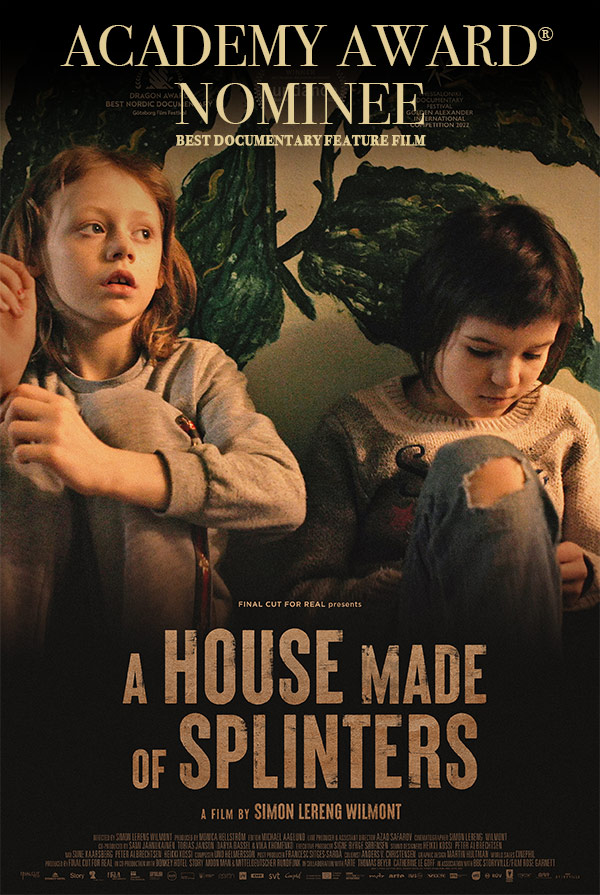
This documentary had its world premiere at the 2022 Sundance Film Festival and was the Academy Award nominee for Best documentary film in 2023. The film is about children from a special orphanage in Eastern Ukraine. A small group of social workers is taking care of children who lost their parents in the war. They are trying to create a safe space for children near the front line. The filming of the documentary lasted for more than two years in the Donbas region.
Simon Lereng Wilmont’s “Distance Barking of Docs” received the Grand Prix at the 12th RUSDOCFILMFEST in 2019.
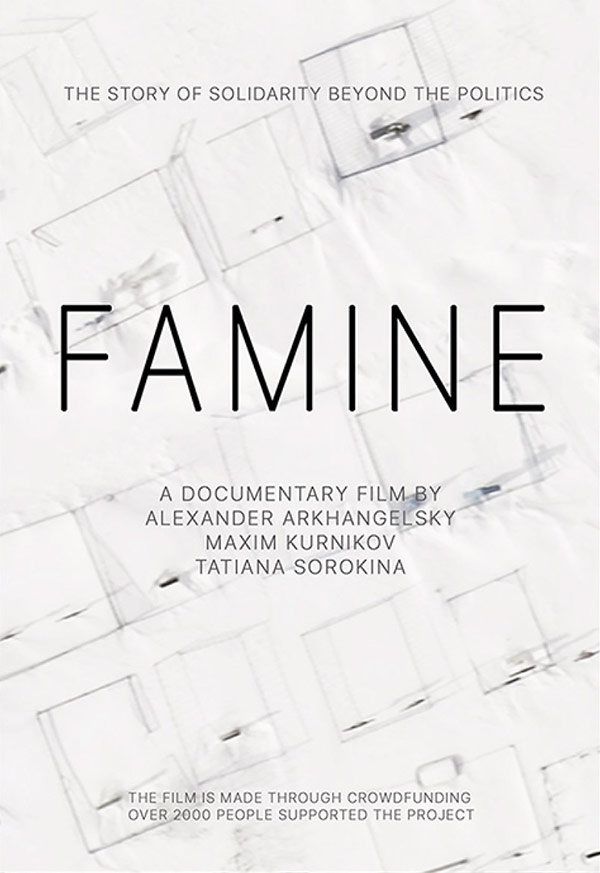
Idea: Maxim Kurnikov Screenwriter: Alexander Arkhangelsky
This project by Alexander Arkhangelsky, Maxim Kurnikov and Tatyana Sorokina highlights the terrible 1920s famine in the Russian Volga-river region and the international solidarity and support during that difficult time above ideology and politics. Experts from different countries not only explain the causes of the famine but also talk about how humanity erased the boundaries between states and peoples. The Nansen Mission, the American ARA, the English Quakers, and several dozen other international organizations, which worked in Soviet Russia at the time, helped people survive. The famine of the 1920s became one of the first symbols of the international struggle for life. The film is not only a story of political decisions, but first and foremost a story of humanism which should not be forgotten. In the Spring of 2023, this documentary was censored by Russian officials and was banned from being screened in the Russian Federation.
The film will be screened only in the Anthology Film Archives (in person).
Live Screening at Anthology Film Archives
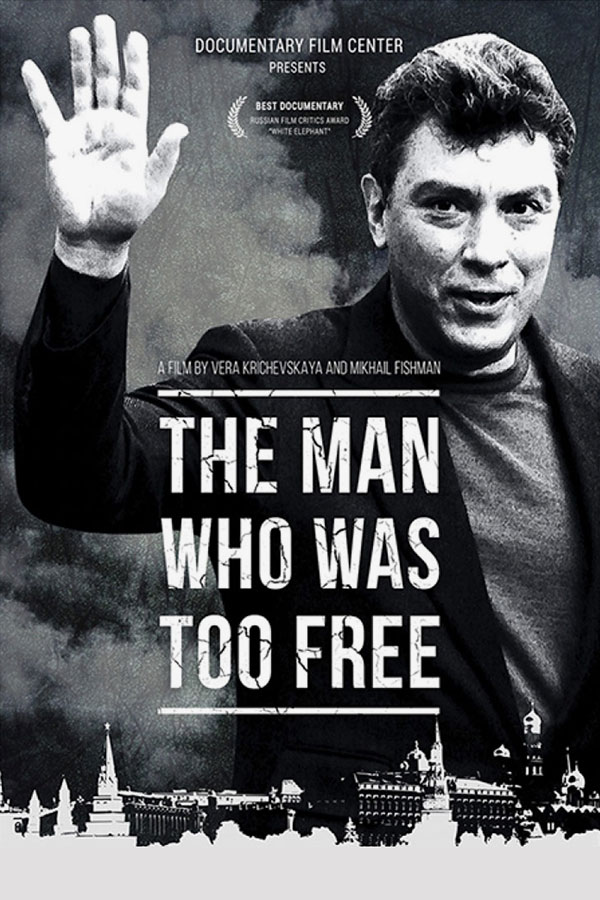
The life of Boris Nemtsov (1959-2015) is intertwined with the Russian history of the past 30 years. The film begins in the 1990s, when Nemtsov was seen as a possible future president of the country and ends in February 2015 with his assassination. The most important events of Russian society from 1990 to 2015 and Nemtsov’s role in this socially and politically active time period are discussed by his friends and leading Russian politicians.
Grand Prix of 10th RDFF 2017
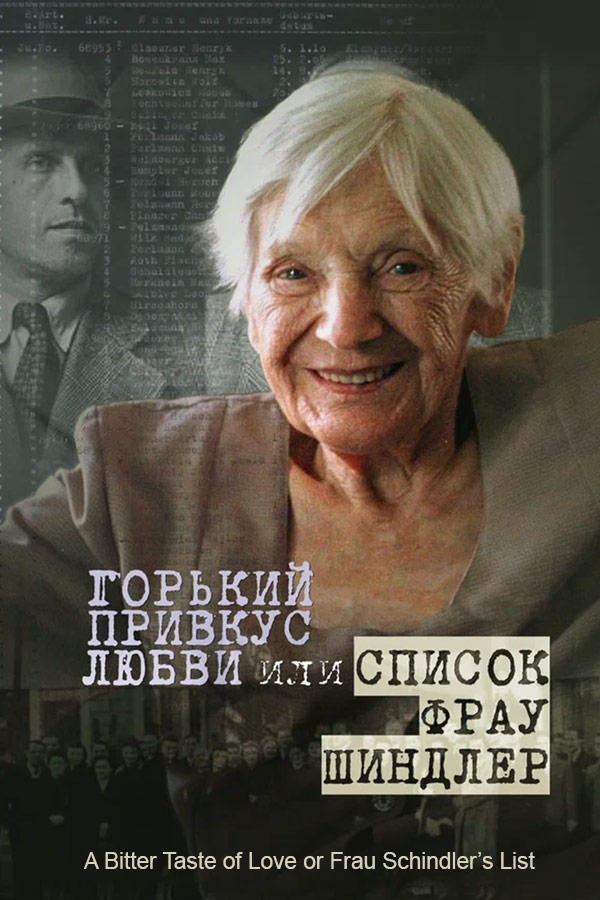
Emilie Schindler is a “forgotten hero” of Steven Spielberg’s “Schindler’s List”. Frau Emilie with her husband Oskar Schindler saved the lives of 1,200 Jews during World War II by employing them in their factories, providing immunity from the Nazis. While Oskar was involved with the daily trials of working with the Nazis to protect his workers, Emilie took it upon herself to feed and attend to the physical care of these people. She was not only the main supporter of her husband but the main moral figure in their opposition to the Nazis and in defending the values of humanism in those terrible years. The Schindlers spent all their money, traded all of Emilie’s jewelry, and became bankrupt helping people escape the Nazis. However, Jewish families helped them to escape from the Soviet Army in 1945. Separated after the war, Emilie spent the rest of her life in poverty. “Schindler’s widow left to die in bitterness and poverty,” wrote The Guardian when Emilie passed away in 2001. She died on the way to her German homeland from Argentina where she had spent 50 years of self-imposed exile. Her friend and biographer, Erika Rosenberg, says Oskar and Emilie in fact had a “50-50” role in saving the Jews during the Holocaust. American premiere.
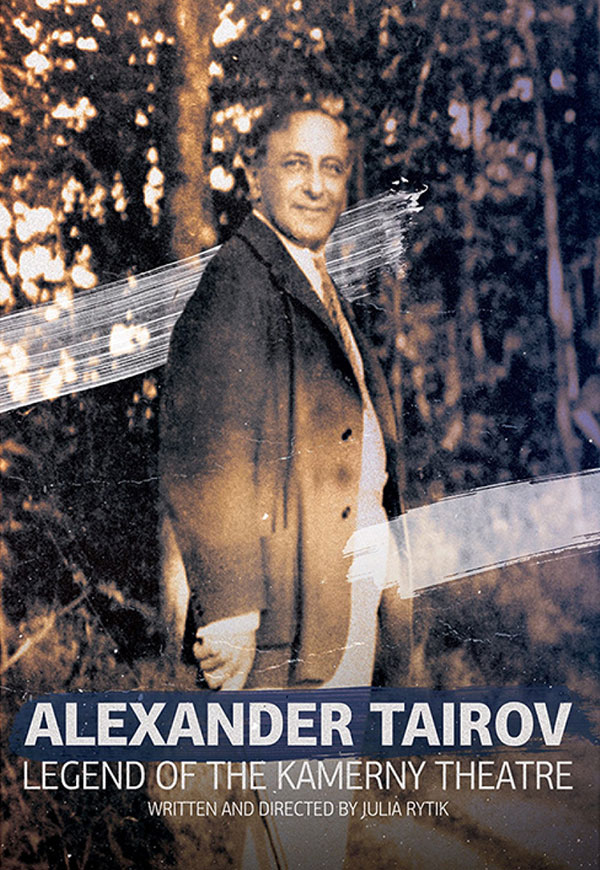
Alexander Tairov, was a founder and producer-director (1914-1949) of the Kamerny (Chamber) Theatre in Moscow. He created a prototype of his Chamber Theatre as a “synthetic theatre, incorporating ballet, opera, circus, music hall, and dramatic elements. In 1941, Tairov joined the Jewish anti-fascist committee formed by a group of leading intellectuals to campaign against the nazis during WW2. In 1946, Soviet officials launched attacks on intelligentsia In the Soviet Union. The world-renowned innovative theater director faced the Stalin regime, the closure of his performances, censorship policy, and anti-cosmopolitanism, and had to fight for his theater’s right to exist. In May of 1949, the Kamerny (Chamber) Theatre was closed. Tairov’s Chamber Theatre was accused of “aestheticism and formalism”. The film includes an interview with famous theater-director Roman Viktyuk, a follower of Alexander Tairov.
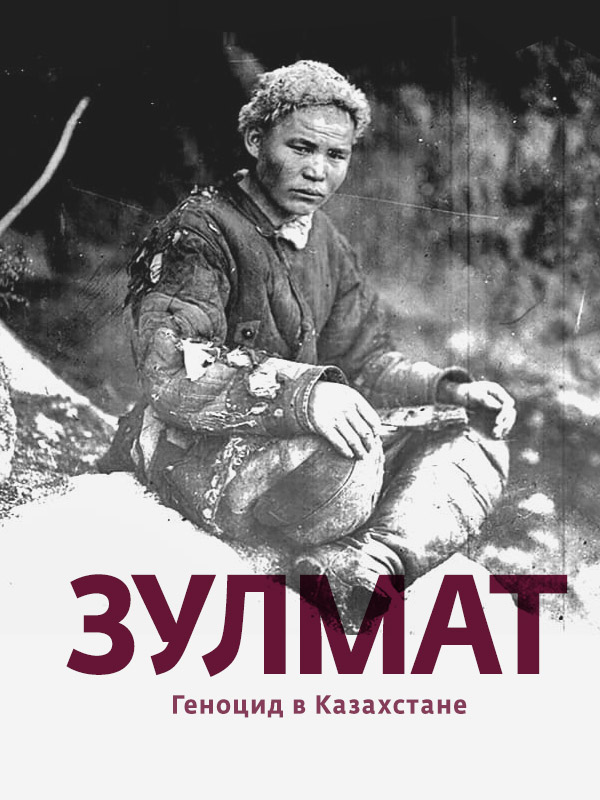
Zulmat means “tragedy” in the Kazakh language. The famine of the 1920-30s in Soviet Kazakhstan was a genuine genocide of this nation, once the largest among Asian nations of the Soviet Union. As a result of the Zulmat about 4 million people died in just ten years. The film tells about this horrible tragedy, about the Soviet Union’s repressive collectivization, and the brutality of Stalin’s dictatorship.
The Humanitarian Award of 13th RDFF 2020

On August 25, 1968, Soviet dissident Victor Fainberg joined seven other USSR citizens in the Red Square Demonstration to protest the Soviet-led invasion of Czechoslovakia. They were known as the “Magnificent Eight”. Fainberg paid for his “five minutes of freedom” on the Red Square with 5 1/2 years of confinement and torture in a Soviet “mental hospital”. From the crushing of the Prague Spring (1968) to Russia’s invasion of Ukraine (2022), Fainberg’s insider testimony on the price and triumph of resistance to evil takes us on a breathtaking journey into the madness and hopes of contemporary Russia.

On August 25, 1968, the Russian poet Natalia Gorbanevskaya’s actions changed her life: carrying her three-month-old son, she, with seven like-minded people, protested against the Soviet-led intervention of Czechoslovakia at the Red Square in Moscow.
The cost of this action was years of imprisonment. Later she emigrated from the Soviet Union. Gorbanevskaya — a legend of the dissident movement — was often called a “hero”. However, she has said: “I’m not a hero; I’m just an ordinary person.” The film team has been interviewing their character for several years for this documentary. As a result, they have created a real portrait of Natalia Gorbanevskaya — the Poet and the Citizen.
“Faces of Russia” Award of 10th RDFF 2017

What was Stalin’s main ‘shamanic’ secret?
How was the 20th century’s cruelest dictator able to repress his own country, murder his own people, terrorize half of the World — and yet inspire some to love him as a saint?
“Faces of Russia” Award of 13th RDFF 2020
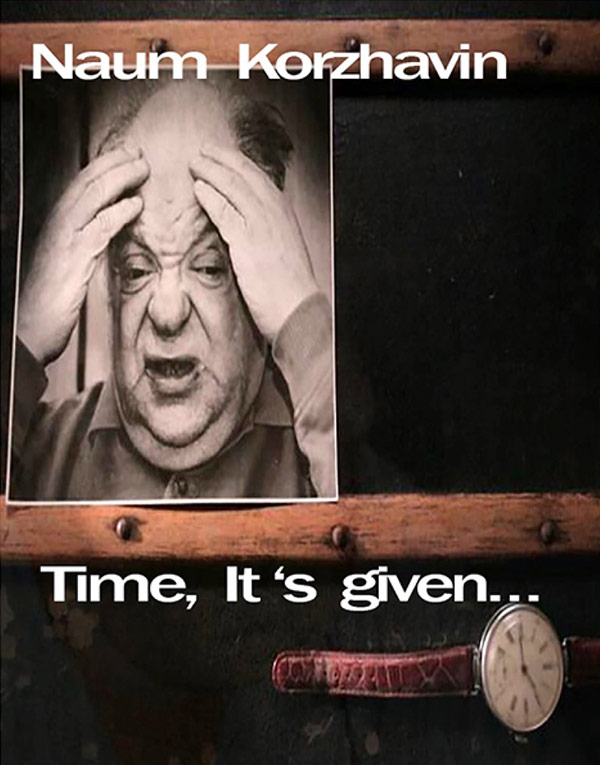
This documentary is dedicated to the 90th anniversary of the famous Russian poet Naum Korzhavin (1925–2018). The life and fate of the country, his poems, and memoirs, his feelings of pure truth and humanity, even his strong character — everything was linked to the epoch: Holodomor, GULAG, the political thaw, immigration... As a student, he was sentenced to prison to the GULAG for his verses in Stalin’s Soviet Union; he was one of the most popular poets published in Samizdat He immigrated to the US. in the 1970s, and became the “Voice of Honor” for the Russian-speaking multiethnic diaspora.
Special Diploma of 10th RDFF 2017

Khash. There is such a cultural and gastronomic tradition in the Caucasus to cook and eat it: 1) only in the morning, 2) only with vodka, 3) only without women. So, is this a movie about soup? No. It’s a film about something that cannot be talked about. A WAR. It’s a story about a community of Armenians who lived in Baku, Azerbaijan, during the Soviet Union, but fled to the USA, Russia, and Armenia to survive in the ethnic war. They have been living in these countries for 30 years, and have adapted to the new life, but they all have remained in the past. The film tells cinematic episodes about khash during the war, episodes that revolve around the central image of the film: the traditional khash ceremony, carefully preserved by people who have long left the motherland where they were born and grew up. Khash is more than just a tradition.
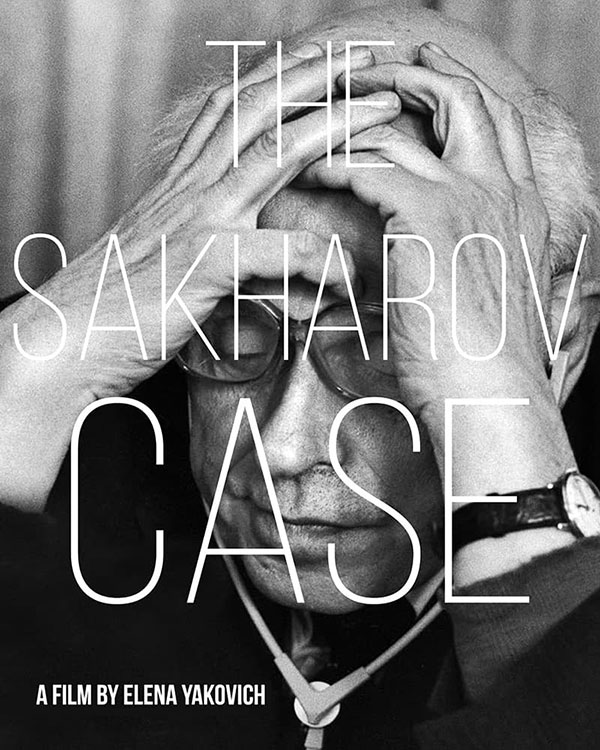
He was the moral conscience of a captive nation, the most visible symbol of resistance to the Soviet regime. Creator of the hydrogen bomb, Andrei Sakharov was Russia’s most famous fighter for human rights and a Nobel Peace Prize winner. He lived under six Soviet rulers and hoped he could influence their decisions, but along the way he influenced society.
On May 21, 2021 the world-famous scientist would have turned 100.
The documentary film by TEFI award winner Elena Yakovich tells about the difficult fate and incredible strength of Sakharov’s spirit, and how his legacy lives on.
Special Jury Prize of 13th RDFF 2021
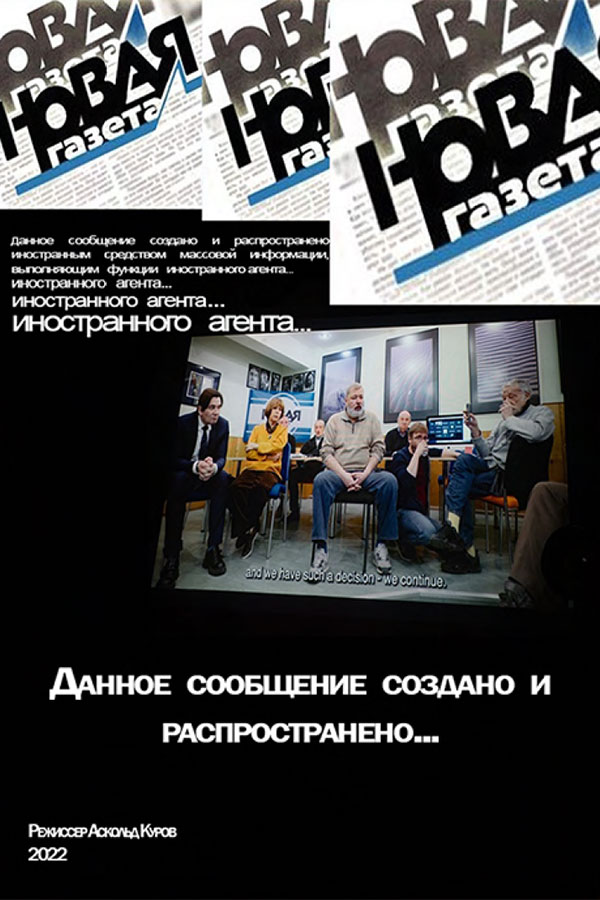
“This Message has been created and distributed by a foreign agent” — this signature must be included in all texts written by journalists who oppose the contemporary Russian authoritarian power. Askold Kurov’s new documentary was started before the war against Ukraine, before the Novaya newspaper and TV Channel The Rain (Dozhd’) were pushed to be closed in the Russian Federation, and before the Memorial organization and the Sakharov Center were banned by officials. However, a reality made some serious adjustments to the film script Russia started a war against Ukraine, independent journalism was banned in the country, and human rights were destroyed. But the film team continued to shoot: the end of the broadcast of Dozhd’, and the end of Memorial, and Novaya...
This documentary is a unique historical document, a cast of modem tragedy filmed in real-time. A chronicle of a plunging country.
Askold Kurov’s documentary “Novaya” received the “Faces of Russia” Award of the 12th RUSDOCFILMFEST in 2019.
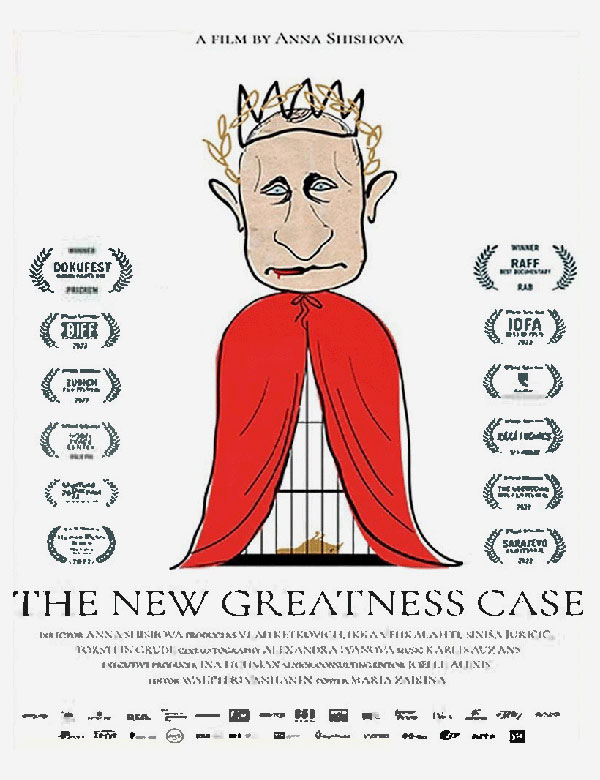
It all began when Anya joined an Internet forum, where young people chatted about music, ecology, and current affairs. Many were critical of Putin’s politics. One of the members of the chat, calling himself Ruslan D, was particularly outspoken in criticizing Putin’s regime. Ruslan suggested that they should meet in person. A dozen members, including Anya, agreed. Several times they gathered at Mcdonald’s, but then Ruslan D rented a small office for their meetings. It was later revealed that he had outfitted the office with hidden cameras. He insisted that they become a “proper political movement” and proposed a pathetic title for their group: “The New Greatness”. Ruslan D shaped the group to fit the Russian State’s description of an “extremist organization” as defined by the legislation. He created leaflets and also taught individuals in the group how to make Molotov cocktails, secretly filming them all the while. Then, he turned the “incriminating evidence” over to the police. All ten members of “The New Greatness” were arrested, and some of them were tortured and forced to make false testimonies against each other.
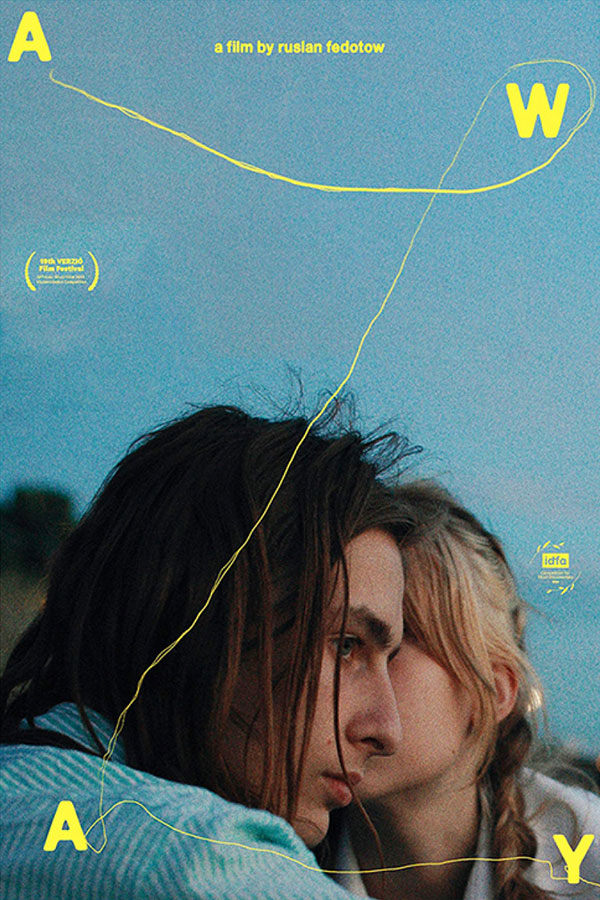
A heartbreaking portrait of 16-year-old Ukrainian refugees Andrey and Alisa, who help out at a school for refugee children in Budapest. Andrey asks the children to draw pictures of something from back home in Ukraine. What beautiful things can they recall? He offers the example of his own grandfather’s cherry orchard. The children use confrontational, adult vocabulary to describe their experiences of war.
A young boy earnestly goes through a number of battle strategies, and a girl provides a vivid account of a rocket attack. After school, the young couple makes colorful protest artwork out on the streets of the Hungarian capital, sparking discussions between pro-Russian and pro-Ukrainian passersby. The camera films the pair without commentary, capturing the everyday fun had by two teenagers in love, as well as the difficult phone calls to the home front. Reassuring stories of ripening cherries are welcome, but the sadness of the war, the imminent trauma, and the growing awareness of their wrecked youth are unfortunately ever-present.
Live Screening at Anthology Film Archives
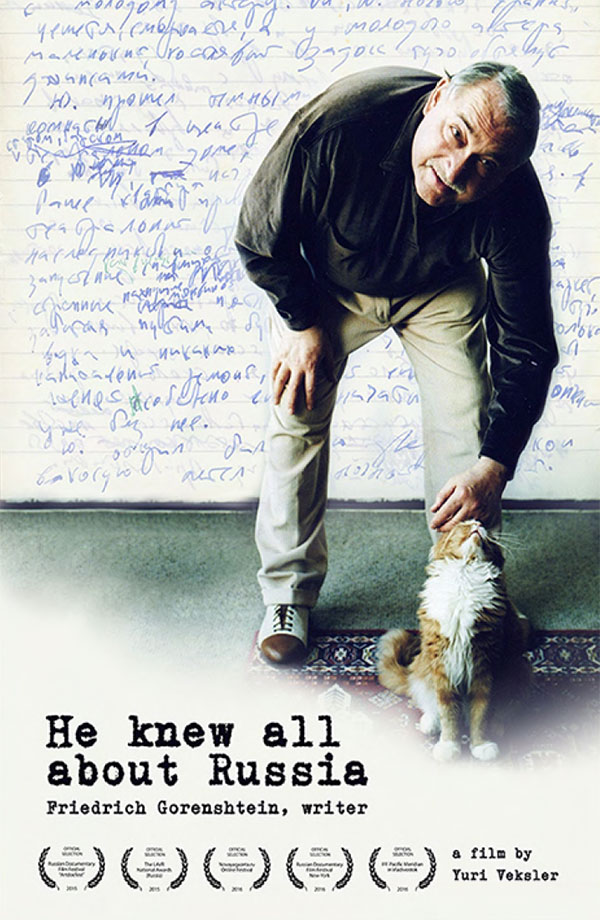
The film is dedicated to Friedrich Gorenshtein, an outstanding Russian writer, playwright and screenwriter, who did not fit - and did not want to fit - into the mainstream Soviet literary canon of the 1960-70’s. Since 1980s he had been lived and worked in Berlin, where he died in 2022. The film is not only a story of his life and forbidding but a great collection of portraits of his friends — Andrei Tarkovsky, Andrei Konchalovsky, Andrey Bitov, Victor Erofeyev, Evgeny Popov, Boris Khazanov, and others. Most of the archive material used in the film is shown for the first time.
Laureate of 9th RDFF 2016
